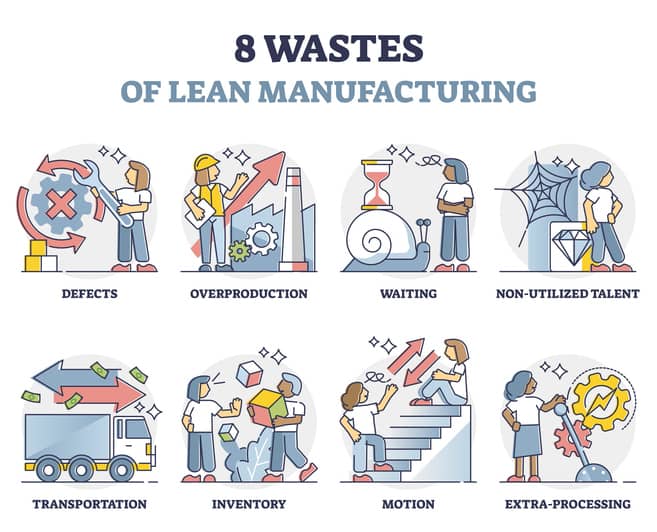A French company battered by the economic fallout from lockdowns has turned to Lean strategies to make the company more efficient both during and after the coronavirus crisis. The company’s longstanding focus on continuous process improvement is part of what drives the new initiatives.
Much like other companies that have turned to Lean Six Sigma during the coronavirus outbreak, French food processing business Sodebo is using Lean to promote better safety and streamline operations as lockdowns cause sales to fall.
Sodebo specializes in selling pizzas, pastas, salads and sandwiches. Before the coronavirus outbreak, they sold their products in supermarkets, service stations, airports and railway stations. The impact of the outbreak on supply chains caused many of those sales to cease, resulting in a 40% overall drop in sales.
Things are slowly reopening, but Sodebo leaders still face the prospect of furloughing staff, according to Planet Lean. However, the company also is putting Lean strategies into play to help them weather the crisis.
A Focus on Continuous Improvement
The Sodebo company focuses an entire page of its website on continuous improvement. Even before the crisis, Sodebo has been a model of how to grow a business. The operation started in the 1970s as a local delicatessen that catered weddings and parties in a small town south of Nantes, France.
In the 1990s, the company began to expand to new cities and added sandwiches, salads and pasta to its product line. Now, the company is expanding into Belgium and Brazil. The three daughters of the original founders co-manage the company.
The three began implementing Lean strategies in recent years. They had grown to a significant size – about 2,500 employees – but had seen the cycle of investment and penetration into new markets start to slow. They also saw “a budding bureaucratic system starting to push back at their requests for changes, new initiatives or innovation,” according to Planet Lean.
Using Lean, the company renewed its focus on quality and looked at their product from the point of view of the customer, making changes to benefit them. They also used Single Minute Exchange of Die (SMED) to implement changes in production that added more flexibility to the process.
Lean and the Coronavirus Outbreak
The three co-owners also put Lean practices into use when the virus outbreak hit France. The first few days were spent setting up safety measures. As a food preparation company, they already had many safety measures in place, including facemasks, plenty of hand sanitizer and water outlets that work by pressing a pad with a knee, rather than using their hands.
However, they put more stringent rules in place to combat the virus. They then turned to Lean to solve a problem everyone faces: getting people – in this case, their employees – to adhere to those rules.
After developing a matrix detailing the new safety rules and what is expected from each employee in terms of safety, the three realized that frontline employees knew best how to apply those rules to their particular work area. They encouraged employees in each area to hold Kaizen activities to determine the best way to apply the new rules.
Further, they asked employees to take on issues such as periodically revising standards for applying safety rules to their area and finding ways to fight force of habit and avoid slippage from the new safety standards.
Other safety measures include manufacturing visors using 3D printers and laser cuts, according to a release from the company.
In a separate Lean-driven effort, the company is reducing waste and saving costs by recycling accessories from unsold food (forks, cookies and salad dressings) and freezing unused raw materials. The effort dovetails into ongoing company efforts to reduce waste and become more environmentally friendly.



